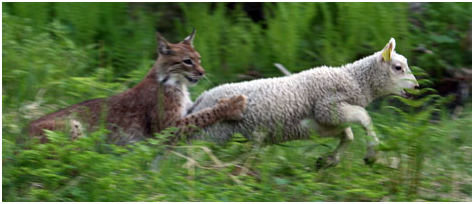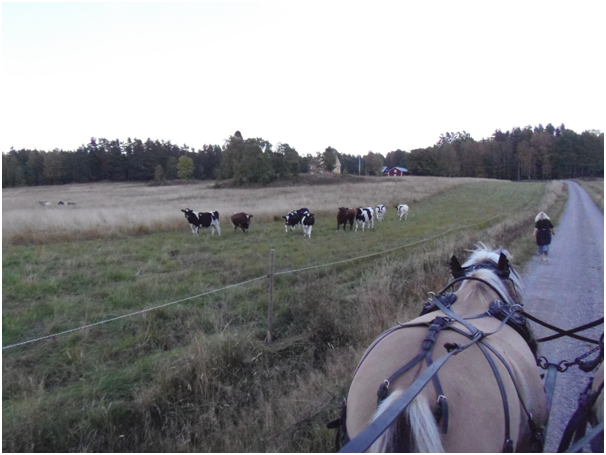@Alexander_Lees My perspective on the reintroduction of lynx to the UK in answer to @DrHWeb’s thread in which he makes the comment below.
(A thread)
1/16 https://twitter.com/DrHWeb/status/1352984737288048640
(A thread)
1/16 https://twitter.com/DrHWeb/status/1352984737288048640
Any 2 farmers will argue about anything, but we’re all pretty much united against the idea of having lynx reintroduced!
I've interviewed a lot of farmers for newsletters and my book. So I think I am qualified to remark.
https://www.amazon.co.uk/Whitefaced-Woodland-Sheep-Society-Profiles/dp/099324727X
2/16
I've interviewed a lot of farmers for newsletters and my book. So I think I am qualified to remark.
https://www.amazon.co.uk/Whitefaced-Woodland-Sheep-Society-Profiles/dp/099324727X
2/16
When talking about reintroducing lynx to the UK comparisons are often made with Scandinavian.
I’ve been to Scandinavia and stayed on Norwegian and Swedish farms. Such comparisons are meaningless. Their methods and terrain are different.
4/16
I’ve been to Scandinavia and stayed on Norwegian and Swedish farms. Such comparisons are meaningless. Their methods and terrain are different.
4/16
Sheep farming in Scandinavia is on a smaller scale part of bigger mixed operations. They bring sheep inside in adverse weather and to protect them from predators. The farms are often surrounded by forest, full of prey that lynx can take. 5/16 https://www.fwi.co.uk/livestock/overview-of-swedish-sheep-farming
In the UK sheep have played a much greater role than in Scandinavia.
“The wealth of Britain was built on the backs of sheep.”
The Industrial Revolution was led by the wool trade. To remind them in the House of Lords, lords sit on wool sacks. 6/16
http://www.explore-parliament.net/nssMovies/06/0663/0663_.htm
“The wealth of Britain was built on the backs of sheep.”
The Industrial Revolution was led by the wool trade. To remind them in the House of Lords, lords sit on wool sacks. 6/16
http://www.explore-parliament.net/nssMovies/06/0663/0663_.htm
“Lynx hunt deer, not sheep.”
Lynx are ambush predators of the forest. There is a lot of tree cover in Scandinavia.
Our open hills will make it hard for lynx to stalk red deer, but much easier to stalk sheep in the heather. 7/16
https://scandlynx.nina.no/scandlynxeng/SCANDLYNX-research/Predation
Lynx are ambush predators of the forest. There is a lot of tree cover in Scandinavia.
Our open hills will make it hard for lynx to stalk red deer, but much easier to stalk sheep in the heather. 7/16
https://scandlynx.nina.no/scandlynxeng/SCANDLYNX-research/Predation
“Lynx will only take the sick and weak”
Farmers know predators are opportunists. Usually the weak and sick, but also the fat & the slow or those confined.
Farmers believe slow, fat sheep, confined in a field must be a more tempting prey than fit agile deer on open hills. 8/16
Farmers know predators are opportunists. Usually the weak and sick, but also the fat & the slow or those confined.
Farmers believe slow, fat sheep, confined in a field must be a more tempting prey than fit agile deer on open hills. 8/16
“Lynx kill an average of 4.8 foxes each a year”
In the estate next to my farm, the old gamekeeper used to shoot an average 30 or more foxes a year.
To replace him to control foxes would require a population of at least 6 lynx.
That’s unsustainable. 9/16 https://twitter.com/DrHWeb/status/1352984714278219777
In the estate next to my farm, the old gamekeeper used to shoot an average 30 or more foxes a year.
To replace him to control foxes would require a population of at least 6 lynx.
That’s unsustainable. 9/16 https://twitter.com/DrHWeb/status/1352984714278219777
“lynx will kill a few sheep.”
"Farmers will be compensated."
But it’s not just about money (the financial side is still important, so I shall return to it in a moment)
The relationship between the farmer and the animals s/he cares for is often misunderstood. 10/16
"Farmers will be compensated."
But it’s not just about money (the financial side is still important, so I shall return to it in a moment)
The relationship between the farmer and the animals s/he cares for is often misunderstood. 10/16
When you take any animal into your care, you’re responsible for its health and welfare.
It's the farmer’s job to keep an animal alive and healthy. If s/he fails to do that the investment’s lost and the farmer has to pay for disposal.
Successful farmers care for their sheep. 11
It's the farmer’s job to keep an animal alive and healthy. If s/he fails to do that the investment’s lost and the farmer has to pay for disposal.
Successful farmers care for their sheep. 11
But there’s more to being a sheep farmer.
A lamb needs feeding regularly. Mum’s milk is best but there are a number of reasons why this may not be possible.
If you keep sheep, you will end up bottle-feeding lambs.
Which is NOT PROFITABLE
12/16
A lamb needs feeding regularly. Mum’s milk is best but there are a number of reasons why this may not be possible.
If you keep sheep, you will end up bottle-feeding lambs.
Which is NOT PROFITABLE
12/16
Where'll "compensation" come from?
Red squirrel conservation, I’ve been told, “would cost more than the whole conservation budget.”
“The wildlife trusts’ budgets?” I asked.
“No, the entire UK conservation budget, from all government and NGOs sources.”
Why prioritise lynx? 13/16
Red squirrel conservation, I’ve been told, “would cost more than the whole conservation budget.”
“The wildlife trusts’ budgets?” I asked.
“No, the entire UK conservation budget, from all government and NGOs sources.”
Why prioritise lynx? 13/16
The term “compensation” usually means lost cash, other benefits inc. pain and suffering.
But in farming, it usually means the carcase value and does not include breeding value or its unborn offspring nor anything else.
Zero if the carcase has gone. 14/16
But in farming, it usually means the carcase value and does not include breeding value or its unborn offspring nor anything else.
Zero if the carcase has gone. 14/16
If farmers have learnt anything about “compensation”; it's a fluid payment, subject to the political whims of those making the payment. In the case of government, this changes with each administration.
It most certainly can’t be relied upon. 15/16
It most certainly can’t be relied upon. 15/16
So, to recap; you want lynx but you really don’t know how much impact they will have on us but expect us to cooperate on the promise of compensation?
You think?
When many of us have access to guns?
No, we won't.
You think?
When many of us have access to guns?
No, we won't.

 Read on Twitter
Read on Twitter



